All cats should be able to walk, run and even jump easily, with strong, well-balanced back legs. There are a number of conditions that can affect the back legs, causing lameness, weakness, lack of stability, poor balance, and even complete collapse.
Cats have powerful back legs, used to help a cat prowl, run, climb and jump as part of their normal activities, such as hunting. The function of the back legs is supported by a combination of strong muscles, with a rich blood supply, and an intricate nerve supply.These muscles, blood supply and nerves can stop functioning normally for a number of different reasons, and when this happens, the back legs can become weaker, unable to support the cat’s weight properly.
This causes the cat’s hindquarters to flop down, either being carried lower than normal, or even collapsing completely, so that they are being dragged behind the cat. The issue may start with the cat just limping, then progress to more serious signs with difficulty walking.
What Causes the Back Legs to Collapse?
Any condition which disrupts the muscle or nerve function, or the blood supply, of the back legs can cause them to collapse.
There are some different medical terms for the types of collapse.
- Paraparesis: weakness of both hind legs
- Paraplegia: complete paralysis of both hind legs
- Quadriparesis: weakness of all four limbs
- Quadriplegia: paralysis of all four limbs
The main common causes are listed below.
Spinal Disease
Any damage to the spine, from trauma to slipped discs to tumors, can stop the normal functioning of the spinal cord providing the nerve supply to the back legs, leading to weakness and collapse. Rarely, some diseases affecting the central nervous system (brain) may be involved.
Vascular Disease
Diseases involving the blood supply, such as clots (e.g. thromboembolism affecting blood vessels such as the aorta, known as a saddle thrombus) can disrupt the blood flow to the back legs, causing severe weakness and collapse. Heart disease such as cardiomyopathy can predispose to this issue.
Metabolic Diseases
Feline diabetes mellitus, can cause unusual signs (such as a neuropathy causing a plantigrade stance of the hind legs) which may present as the collapse of the back legs. Other metabolic diseases (such as kidney disease) can cause general weakness which can present as rear leg problems. Older cats may be more prone to these types of issues. Sometimes more generalized diseases, such as feline infectious peritonitis, may also cause the back legs to collapse.
Trauma
Damage to the physical structure of the back legs, from the feet up to the pelvis, can cause collapse. This can affect the soft tissues (e.g. sprains of muscles and tendons), as well as the bones. Nerve damage is also possible.
Old Age Changes
Conditions in older cats, including osteoarthritis (e.g. due to hip dysplasia), can lead to lameness, weakness and collapse of the hind end of the cat.
When to Call the Vet
All cats who are collapsed on their back legs require veterinary care.
As part of responsible pet care, if your cat develops a collapse of the back legs, you need to take them to your DVM veterinarian without delay, so that the cause of the problem can be identified and so that treatment can be given.
Your veterinarian may take the following steps:
- History taking
- Physical Exam
- Routine blood tests
- Specialized blood tests e.g. for FeLV or FIV
- Blood pressure measurement
- Imaging, such as x-rays, CT or MRI scans
Treatment for Collapse of the Back Legs
Treatment for the collapse of the back legs is very variable, depending on the cause.
Always discuss what would be best for your cat with your veterinarian, as treatment options will vary depending on the cause.
- Spinal disease: This may require strict rest, combined with anti-inflammatory medication, or in severe cases, spinal surgery may be needed to solve the issue.
- Vascular disease: Blodd clots (e.g. aortic thromboembolism) need intensive veterinary care, including pain relief and anti-inflammatory medication, as well as treatment of the underlying heart disease.
- Metabolic diseases: Cats with diabetes require stabilization with fluid therapy and insulin. Other diseases will require specific treatments.
- Traumatic injuries: these require treatment for the physical damage, with anti-inflammatory pain relief, supportive supplements, and strict rest (e.g. keep your cat indoors, but away from your dog) in minor cases, or surgical correction (e.g. some fractured bones).
Prognosis varies with each individual case. Minor causes and treatable conditions can make good recoveries, but some more severe cases have a much poorer prognosis.
Prevention of Collapse of the Back Legs
It can be difficult to prevent this condition from occurring. Always follow your veterinarian’s recommendations for preventative healthcare for your cat. Provide a safe area for them to play and exercise in, and seek veterinary advice if they are unwell.
Frequently Asked Questions
What can cause collapsed back legs in cats?
Possible causes include trauma, spinal disease, vascular disease and metabolic disease (such as diabetes mellitus).
How do I know if my cat has collapsed back legs?
If your cat is unable to walk, run and jump normally on their back legs, then they are suffering from some degree of collapse of the back legs.
Can a cat survive collapse of the back legs?
Most cases of back leg collapse respond to treatment, but there are some serious causes (such as spinal fracture) where successful treatment may be impossible, and your veterinarian may recommend euthanasia.
How serious is collapse of the back legs in cats?
This is a serious condition that always requires a prompt examination by your DVM veterinarian
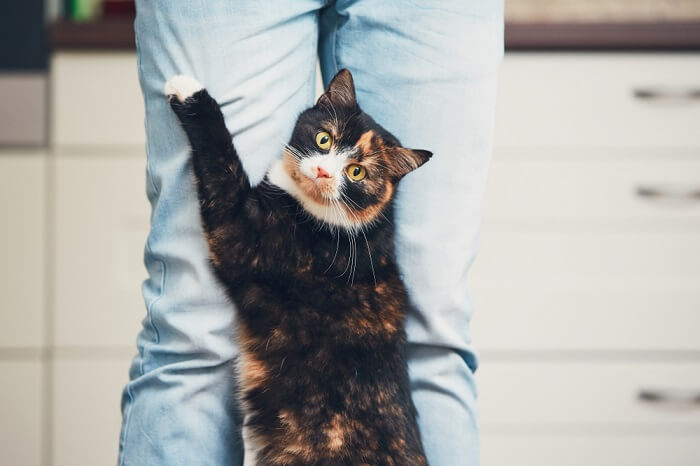
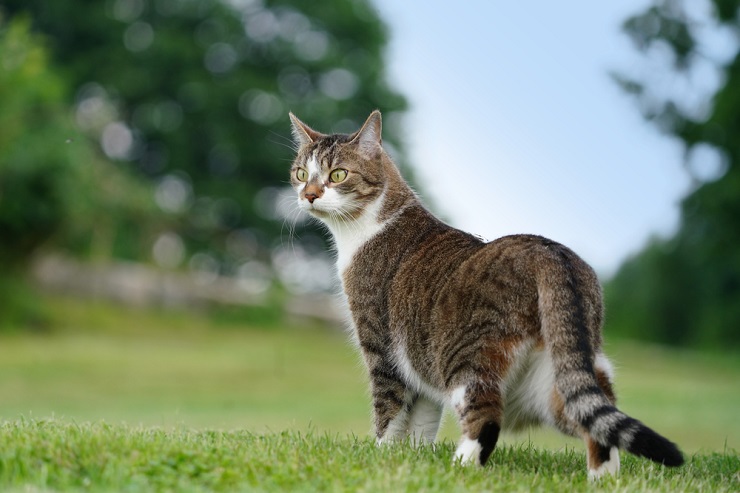
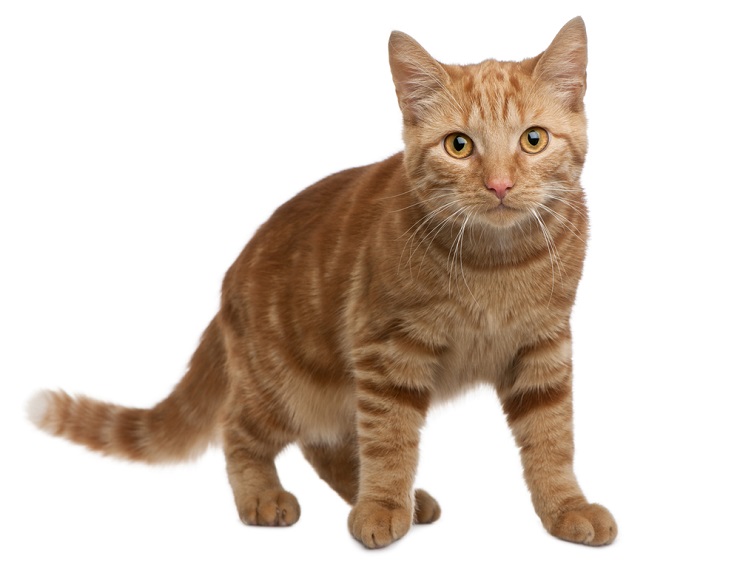
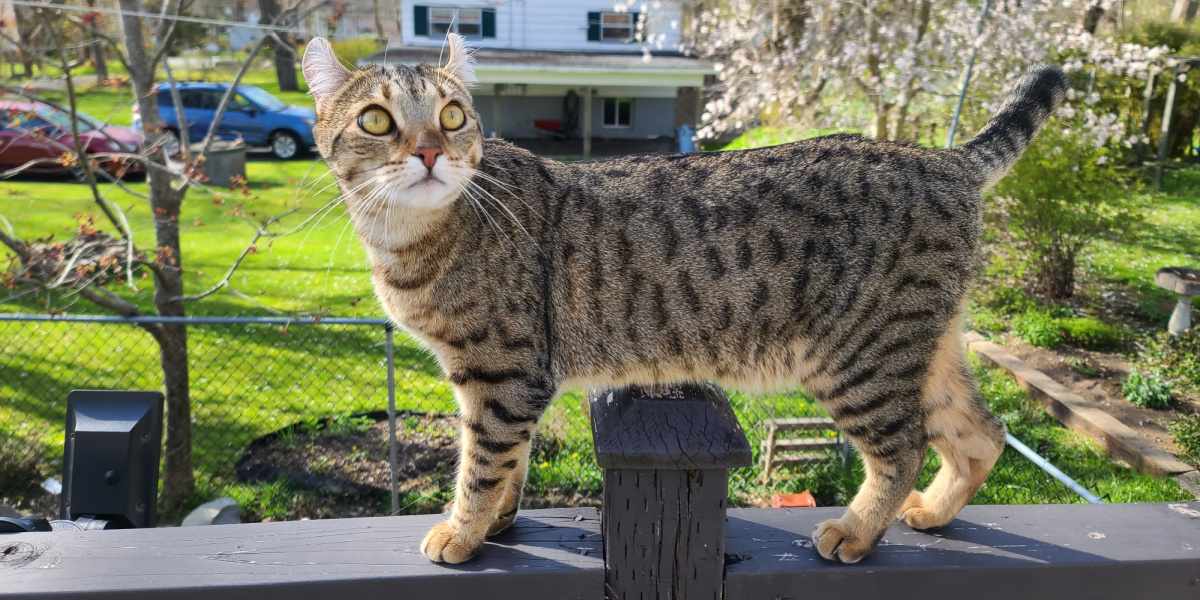



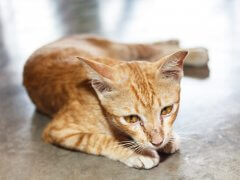




My cat has kidney stones and his back legs have become more weak the past week. We changed his diet about 3 weeks ago. What else can I do for him?
Deb, if you haven’t already seen a vet, I would recommend doing so. Kidney stones are a serious issue that requires immediate treatment. It’s essential that you dissolve the stones and get your cat urinating properly immediately. Depending on the severity of the condition, catheterization may be necessary.
Thank you, have been seeing my vet. Pretty sure he has another uti, so taking a sample to the vet tomorrow. My cat acts totally normal, except for his gait. Which is why I took him to the vet as soon as I noticed it.
Thank you, have been seeing my vet. Pretty sure he has another uti, so taking a sample to the vet tomorrow. My cat acts totally normal, except for his gait. Which is why I took him to the vet as soon as I noticed it.
About a week ago my cat started acting ill. For about 48 hours he wouldn’t even eat or drink. After 48 hours or so, he finally started drinking and eating, but VERY little. So about 72 hours into this I noticed that he is walking as if he was drunk. And this has progressively gotten worse. Now he almost has no control over his back legs, collapsing every other step or so. I have taken him to my vet, they took x-rays, but said everything there checked out okay. They wanted to do about 6-8 other tests on him but it was gonna cost me over 600$. Sad to say I had to decline but they did give him 2 shots of an antibiotic and something else and sent me home with some antibiotics. It’s been 2 days with no progress . He doesn’t even know when he is pooping. I feel so bad for him because I do not know what to do and my vet doesn’t know what’s wrong and the poor guy can’t even walk. Please help.
Hi Mandi – there are so many possible causes of this but it is impossible to say from a distance. Examples include blood clots in his spinal cord- and the problem for you is that making this type of diagnosis can only be done by doing extra tests like MRI scans, which are pricey. The best you can do is to keep engaging with your hands-on vet, and they will at least be able to help you nurse him through this crisis. Hopefully he will start to improve soon.
My cat is nearly 15, not active now, back legs are going. Have to lift him up, sleeps all the time. My question is, would it be kinder to put him asleep.
The best approach would be to take him to your vet, and get a diagnosis made before making any decisions. There are many reasons why cats can get weak on their back legs, and some are very treatable. So get a vet’s opinion, and after you’ve done this, you should be able to work out the prognosis for your cat, and then you can reach a carefully considered decision which is more likely to be the correct one.
Thank you
my 12 year old cat developed diabetes last spring. It took months to get his glucose level stabilized and a month before this occurred, he developed weakness in his back legs, walking on his hocks .B12 was prescribed, but this has not improved his walking. He is now having acupuncture treatments to help with the blood flow. I can see he is more comfortable and now carefully jumps up on my lap in the evenings. Will he ever improve completely? He does not complain: loves being petted and groomed, and tickled with his feather stick. and slowly and carefully straddles each step going to his litter box. Takes the acupuncture treatments comfortably, just complains about getting there – not fussy about car rides.
I am afraid that this is not easy to predict. There are many possible reasons why this could be happening, from low blood potassium to arthritis to spinal issues. I am sure your veterinarian has been looking into these possibilities, along with the treatments that could be used to help if these were suspected. My advice is that if you have concerns, do talk to your veterinarian about them, and often an answer can be found.
Have you tried zobaline you can look it up on Amazon it’s methyl b12 … I give it to my cat but unfortunately haven’t been able to get his diabetes treatment started and just diet isn’t enuff. He was diagnosed on the 7th of March this year. And I took him in for it at first they said arthritis but then when blood work came back it was from diabetes. I feel like I am the worst fur mama ever. I have applied for assistance but no luck yet. But if you look it up on Amazon there are a lot of reviews you can read and you can always ask your vet.
My poor little kitty died. I’m heartbroken and can’t help but wonder what happened. He had sore hip bones, couldn’t jump like he used to, couple lumps when he finally let me feel around, his teeth were wore down and weak, then on Christmas I gave him his new catnip mice and favorite food and he wouldn’t play or eat, then his back legs were weak but he was walking and drinking and using his litter box, but he started to hide in the back under bed. Then he quit drinking water for day then couldn’t move around much, just wanted to hide, he fought to breath, pissed, howled in pain last hour before he passed. He was over 15 but seemed fine just days ago…I called two closest vets and it was day after Christmas and one had no vet til after new year and the other was able to see him following morning but I was 2 hours away in a blizzard that dumped feet of snow. My cat hated going in vehicle and it caused him much distress so I didn’t want to put him through it, I think trip would have killed him anyway….he passed that next day within hours of appointment. Can you help shine any light on what happened or what I could have done better for my little love,
Thank you
Hi Megan – I am so sorry to hear this. Howe completely devastating. You say he was over fifteen, and that holds the key to the answer. He was an elderly cat, and elderly cats are prone to a long list of challenging issues, including kidney failure, high blood pressure and heart failure, as well as internal cancers. There is no way that such diagnoses can be made by just looking at a cat – a series of investigations need to be done by your vet. Some people do that, and yes, that is the ideal perhaps, if length of life is the only goal. But going to the vet does involve stress for the cat, it does involve expense that people may not be able to afford, and it does not always mean that you reach the goal of a longer life: some conditions remain untreatable. From what you say, your cat’s issues were advanced and I do think that it would have made no difference to him, even if you had been able to reach the vet. The only way to know for sure would be to have a full autopsy carried out, but it would make no difference anyway. You have my deep sympathy for your loss. Great love brings deep sadness at the end, always. We focus on the sadness, but remember, the only reason you are sad is because of the love. The only way to avoid the sadness would have been to avoid the love. And you would never have wanted to do that. Take care. Pete
Thank you for reply, my sweet boy was my favorite thing in this whole world and I would take any amount of pain and loss for him. Cats heal the soul. He was a fighter from his first breath to his last and I was so blessed to be his ♡
My deepest sympathy to you on your
Loss.
My Tommy is 18 1/2
Years old and having kidney stone issues now and finding it difficult to walk. I have a vet appt in 2 days. I’m dreading the appt but I don’t want my Tommy to suffer needlessly. We love our fur babies so much and they love us in return.
Our 12 yr old cat has hyperthyroidism and takes 5mg methimazone daily. As a result, she has gained a good amount of weight back. Previous blood tests for diabetes were normal. In general she seemed OK, eating and drinking regularly. We were away for a week and when we got back, she was walking flatfooted on her hind legs. She walks about 5′ and lays down. She can jump onto coffee table (about 18 inches) and will climb steps about 1 to 2 at a time and then resting before moving on to the next step. However, her climbing appears to be very difficult. She is using the litter box and seems to be doing so just fine (my first effort was to make sure she was urinating and defecating). Our caretaker said she noticed a limp about mid-week. Any thoughts on what her cause might be?
Hi Sue – as the article explains, there are many possible causes, and certainly, even though previous blood tests for diabetes were normal, this diagnosis remains very possible. The only way for you to take this forwards is to go back to your veterinarian for an examination and a discussion, followed by tests such as blood and urine samples. Hopefully this will lead you to a specific diagnosis and you can then sort out appropriate treatment. I hope this helps. Pete
My cat is almost 20 years old her back legs are going down but she still gets out and about and eats well . She has had a few accidents but generally goes about her day as normal. Her bones in her spine are more pronounced. I debate taking her to the vet as she hates the car and wonder if all theses symptoms are simply old age .!I also feel we are almost at the stage of having her put to sleep . She doesn’t seem to be in pain . Any advice would be helpful